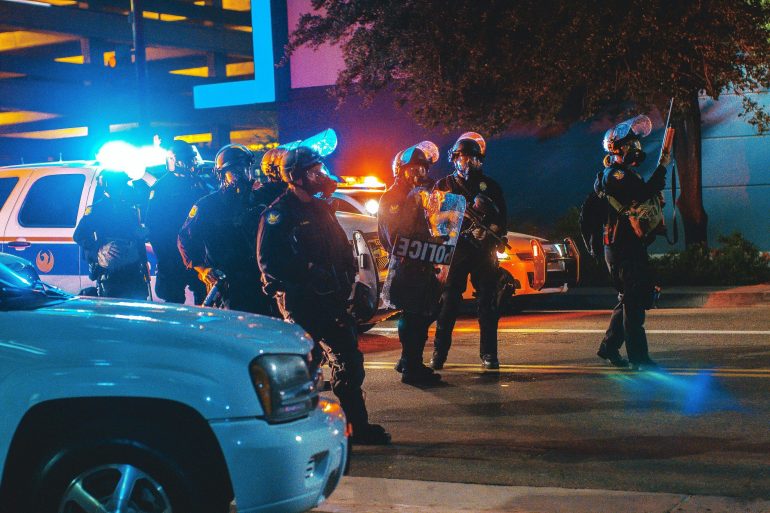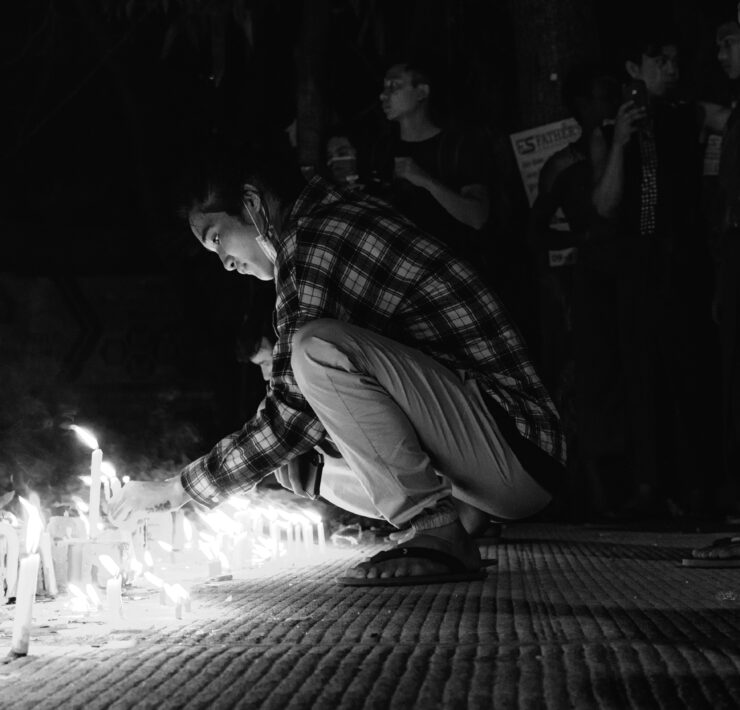OFM News: Accountability in Law Enforcement

Ray has with OUT FRONT Magazine since February of 2020.…
Note: Since publication, Derek Chauvin was found guilty of all charges against him. The following is the unaltered story predating the verdict.
In light of last summer’s protests, sparked by the killing of George Floyd by police officers, local and state lawmakers set out to create more integrity and accountability within Colorado’s police departments.
SB20-217, or the ‘Enhance Law Enforcement Integrity’ Act, was passed during last year’s regular senate session, yet its stipulations will not go into effect until July 1, 2023. The act was sponsored by Senators Leroy Garcia and Rhonda Fields, as well as State Representatives Leslie Herod and Serena Gonzales-Gutierrez.
The law now requires all state and local law enforcement officers to wear body cameras which must remain on when interacting with the public or investigating possible violations of the law. The accountability act also requires local and state law enforcement departments to track data on their employees and make said database available to the public.
Examples of data to be collected includes all use of force by its peace officers that results in death or serious bodily injury, all instances when a peace officer resigned while under investigation for violating department policy, all data relating to contacts conducted by its peace officers, and all data related to the use of an unannounced entry by a peace officer.
The act also sets limitations on how police departments are allowed to respond to protests after viral footage from most major metropolitan cities last summer revealed the incendiary practices used to disperse crowds.
The act states that in response to a protest or demonstration, a law enforcement agency and any person acting on behalf of the law enforcement agency shall not: discharge kinetic impact projectiles and all other non- or less-lethal projectiles in a manner that targets the head, pelvis, or back; discharge kinetic impact projectiles indiscriminately into a crowd, or use chemical agents or irritants, including pepper spray and tear gas, prior to issuing an order to disperse in a sufficient manner to ensure the order is heard and repeated if necessary, followed by sufficient time and space to allow compliance with the order.
Lawmakers ARE working to pass similar legislation at the federal level with the Justice in Policing Act of 2020.
The Justice in Policing Act aims to put an end to racial and religious profiling by mandating race and religious training, outright banning discriminatory profiling, and requiring data collection on investigation practices. The act would also ban chokeholds and no-knock warrants, two practices which have led to the untimely deaths of BIPOC community members.
The accountability act would also hold police accountable in court, a precedent which could be set as the world watches the televised trial of Derek Chauvin, who was charged in the killing of George Floyd. The latest testimony from Minneapolis Police Chief Medaria Arradondo reestablished that Derek Chauvin’s restraint of George Floyd “absolutely” violates department policy and goes against “our ethics and our values.”
Dr. Bradford Wankhede Langenfeld also provided an important testimony as the primary medical professional providing care for Floyd on the day he died. Dr. Langefeld testified that “lack of oxygen,” not an overdose or a heart attack was the most likely cause of Floyd’s death. Whether this or the countless other testimonies we’ve seen thus far are enough to convince a jury remains to be seen.
What's Your Reaction?
Ray has with OUT FRONT Magazine since February of 2020. He has written over 300 articles as OFM's Breaking News Reporter, and also serves as our Associate Editor. He is a recent graduate from MSU Denver and identifies as a trans man.










